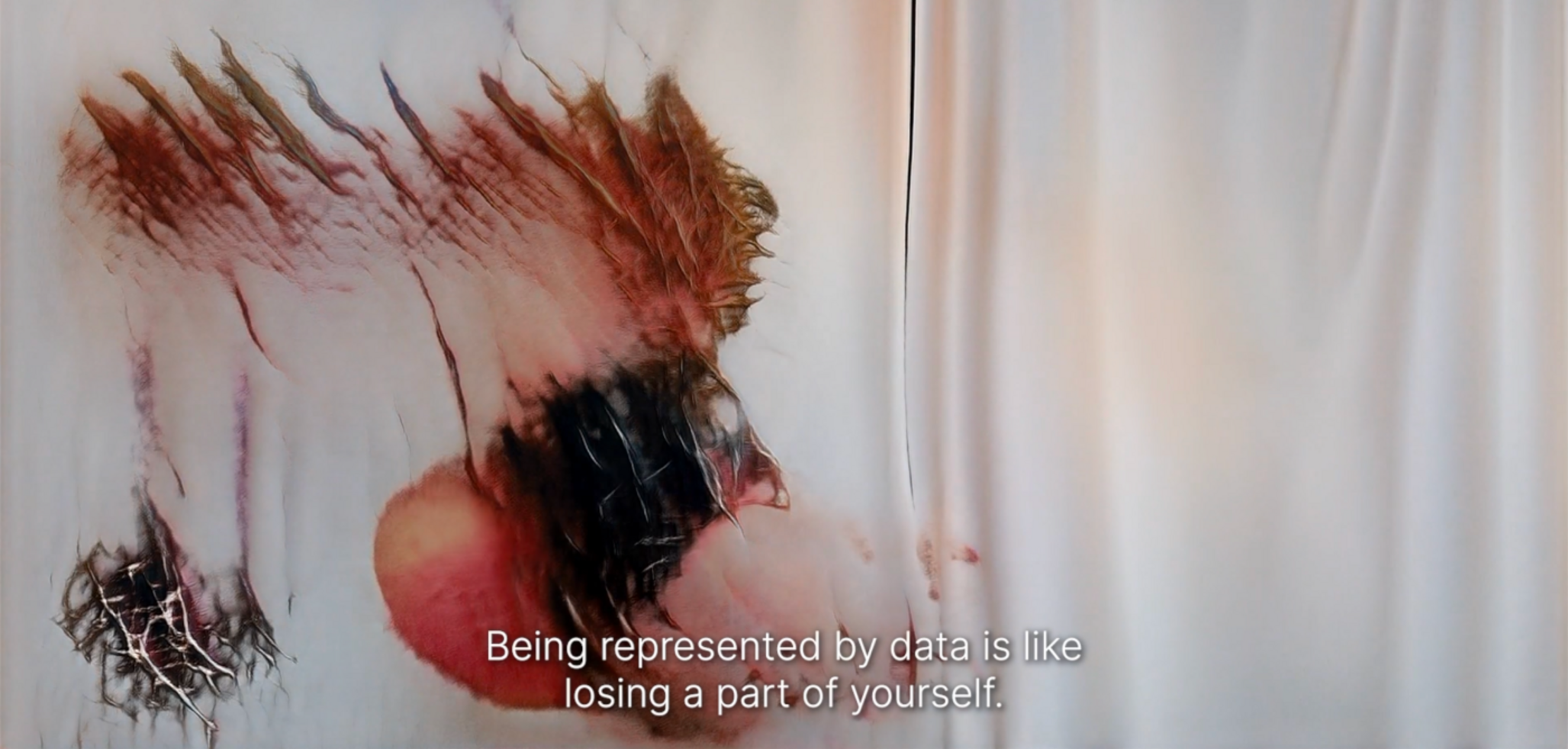Join us for the opening seminar for the project Human-AI Collaboration: Imaginaries, Interventions, Interfaces (HAIC-III), with keynote by Olga Goriunova
Generative artificial intelligence complicates the ways in which we express and understand ourselves with and on computers. Our relations to the likenesses and personal styles of ourselves and our peers are somewhat rustled by technologies that both imitate and (often) banalize those very likenesses and styles. How do these neural network-induced technologies affect the ways in which we understand and negotiate our being as subjects and how do they relate to a broader data and platform culture? This opening seminar of the research project Human-AI Collaboration: Imaginaries, Interventions, Interfaces (HAIC-III) marks the beginning of addressing questions such as, how does generative artificial intelligence affect the conditions under which we express and understand ourselves? At the seminar, we will examine subjectivation and self-expressing with(in) generative artificial intelligence, which happens in a counterbalance with algorithmic interpellation and continuous extension of digital/ideal subjects.
Olga Goriunova, Professor of Media Arts at Royal Holloway, University of London, will deliver a keynote on 22 May and participate in a master class workshop for PhDs on 23 May together with the other members of the research group.
About HAIC-III: Facing the rapid and continuous proliferation of generative artificial intelligence throughout society, HAIC-III aims to combine humanistic methods with art and design practices to understand these emerging technologies in a wider context of critical data studies, digital aesthetics, and software studies, and to nourish a critical, contentious, and practice-based notion of generative artificial intelligence as an aesthetic and cultural interface.
The seminar is supported by the Independent Research Fund Denmark, grant ID 10.46540/4256-00095B Preliminary program 22 May (location TBD)
10.00-10.15: Introduction to the seminar
10.15-12.15 (incl. brief break): Olga Goriunova: Ideal Subjects: Abstract People in Data and Culture (abstract & bio below).
12.15-13.00: Lunch
13.00-15.15 (incl. brief break): Presentations from HAIC-III project members: Kristoffer Ørum, Søren Pold, Kristin Veel, Malthe Stavning Erslev
15.15-15.45: Coffee break
15.45-16.15: Presentation by Blue Cliff (TBC): What lies beneath
(working title) - Our relationship with the digital world, Ai and digital communication. The performance is a collaboration between Yael Gaathon (choreographer and performer), Christoffer Brekne (video artist) and kristian hverring (composer)
16.00: End of seminar
23 May (Aarhus Universitet, Åbogade 34 , 8200 Aarhus N. Building 5342 (ADA), room 333)
Masterclass for PhDs: 9.30-13.00
Registration: https://au.phd-courses.dk/CourseCatalog/ShowCourse/1746
AI & Identity: Ideal/digital subjects and their production through profiling, subjectivation, algorithmic interpellation and enunciation. How can we interpret, read and see this, which options does it leave for art, literature, music and critique?
For the workshop, we are looking for PhDs working with topics within generative AI, platform studies, social media and questions of identity.
At the workshop participants will be asked to give short presentations (10 minutes) and prepare by enegaging with a selection of approx. 5 topical readings. Participation in the workshop and opening seminar will award 1 ECTS. ABTRACT & BIO for Olga Goriunova’s keynote, May 22 10.00-12.00
When I am profiled on a movie streaming platform or given the truth of my sleep by my watch, what is the “me” that I have to deal with? The digital subject composed of my data and the data of others, evaluated and spun to make predictions is not my shadow but an abstraction whose making requires some distance. Distance is also core to the idea of the subject’s interiority (looking at, contemplating oneself) that we know from the thinking subject of modernity. The distance of digital subjects, therefore, is not only about fractured noisy data groupings but builds on how we are trained to be subjects. That is why digital subjects are successful: we know them as processes that result in truths, about us and about the world, which we are trained to want in order to become ourselves. Asking how digital subjects as patterns “come back” to us and compel us to want their “truths”, I answer that it is through configuring desire in relation to what is abstract that we learn to orientate ourselves towards calculations and projections now managed by data analytics and AI. From desiring the best test result to desiring the truth of one’s music-listening personality revealed by Spotify, it is about desiring abstractions that are ideal in two meanings of the word: as results of mathematical operations and something to aspire to or confront. The question then is how to make and want different ideals: after all, isn’t that key to what the arts are supposed to be about?
Olga Goriunova is Professor of Media Arts, Royal Holloway University of London. She is the author of Ideal Subjects. Abstract People in Data and Culture (forthcoming 2025), Bleak Joys. Aesthetics of Ecology and Impossibility (with Matthew Fuller, 2019), Art Platforms and Cultural Production on the Internet (2012) and editor of Fun and Software: Exploring Pleasure, Pain and Paradox in Computing (2014). She was a co-curator of Readme, international touring software art festivals, 2001-2005 and Runme.org software art repository (2003+). She is also a founding co-editor of Computational Culture, a Journal of Software Studies.
https://darc.au.dk/blog/nyhed/artikel/default-2bcd7609df
(Photo: Ada Ada Ada: Being represented by data is like losing a part of yourself, 2024)
